Overconfidence Analysis: Exploring Psychological Impacts and Controls
VerifiedAdded on 2023/06/05
|22
|1345
|305
Essay
AI Summary
This essay provides a comprehensive analysis of overconfidence, defining it as a psychological state where individuals overestimate their abilities, leading to misjudgments. It distinguishes between confidence and overconfidence, highlighting the negative impacts of the latter on personal and professional life. The essay explores the causes of overconfidence, including lack of self-confidence, fixed mindset beliefs, and the illusion of control, further elaborating on its disadvantages such as impaired skill development and intolerance of opposing opinions. It examines how overconfidence affects the workplace, decision-making processes, and leadership, emphasizing its role as a significant cognitive bias. The essay also provides strategies for controlling overconfidence, such as self-honesty, avoiding comparisons, and seeking constructive criticism. The conclusion underscores the importance of avoiding overconfidence and suggests that individuals, like the surgeon mentioned in the case, should implement the discussed recommendations to mitigate its effects. Desklib provides numerous resources and study tools for students.
1 out of 22

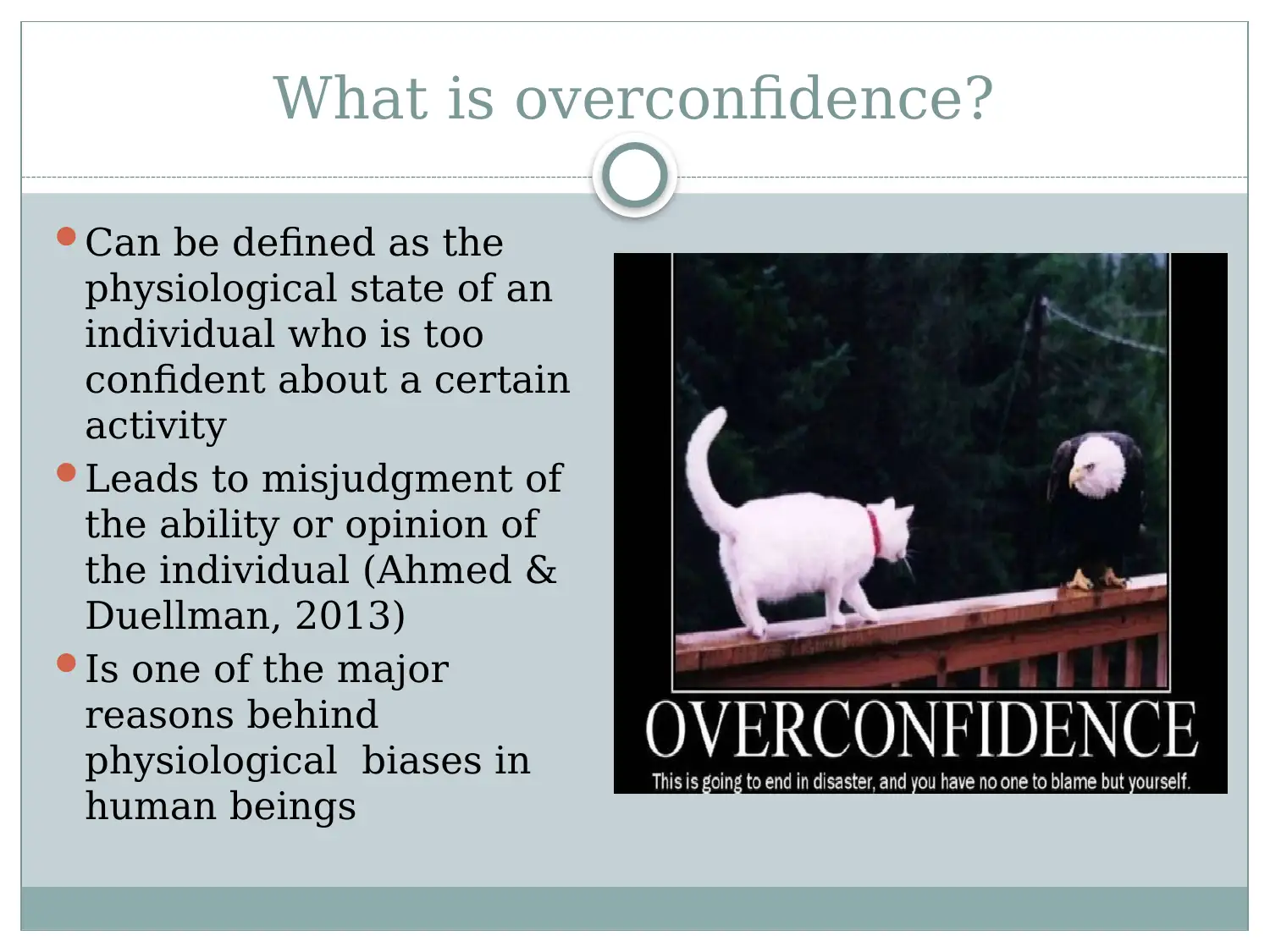
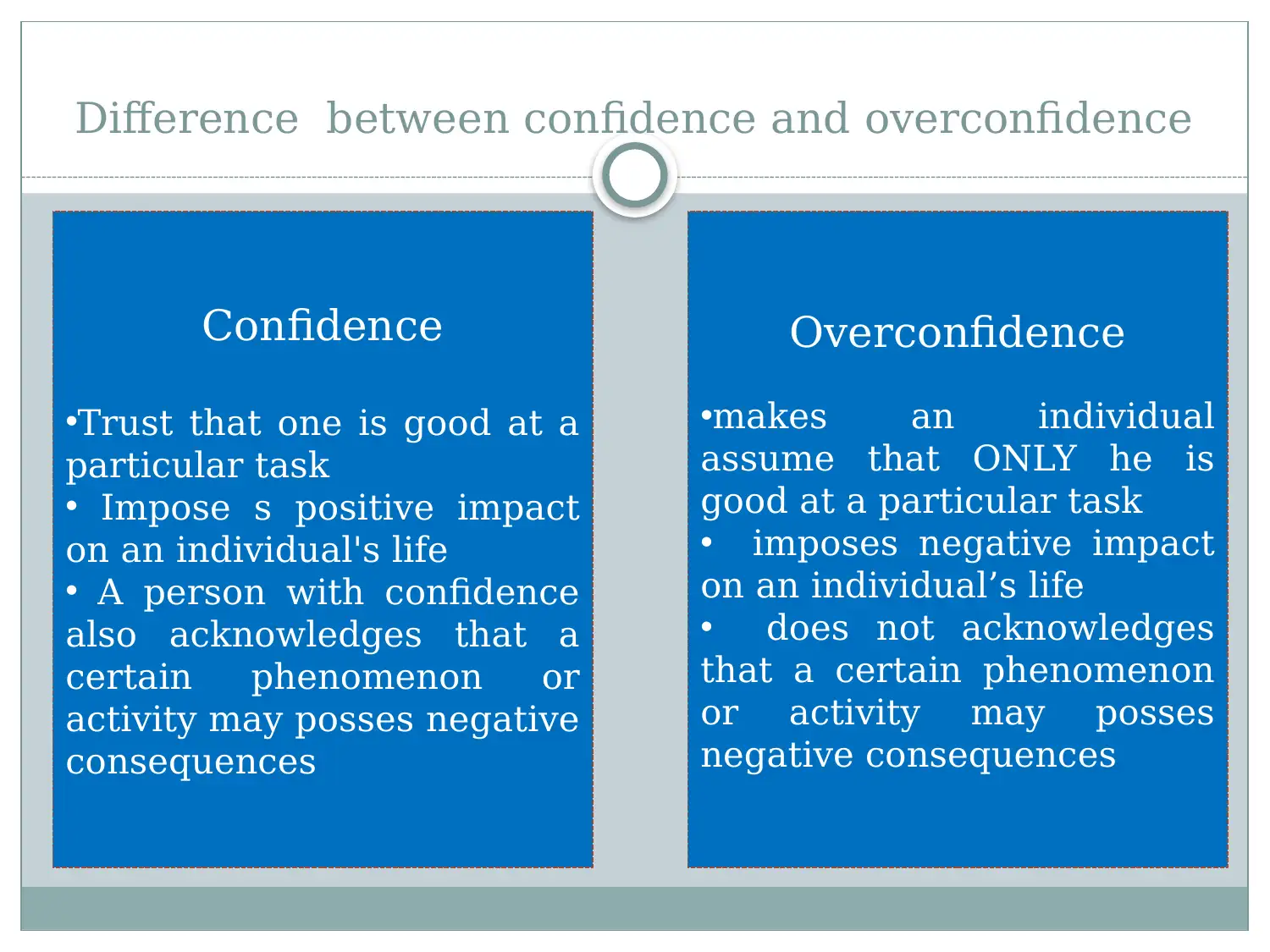

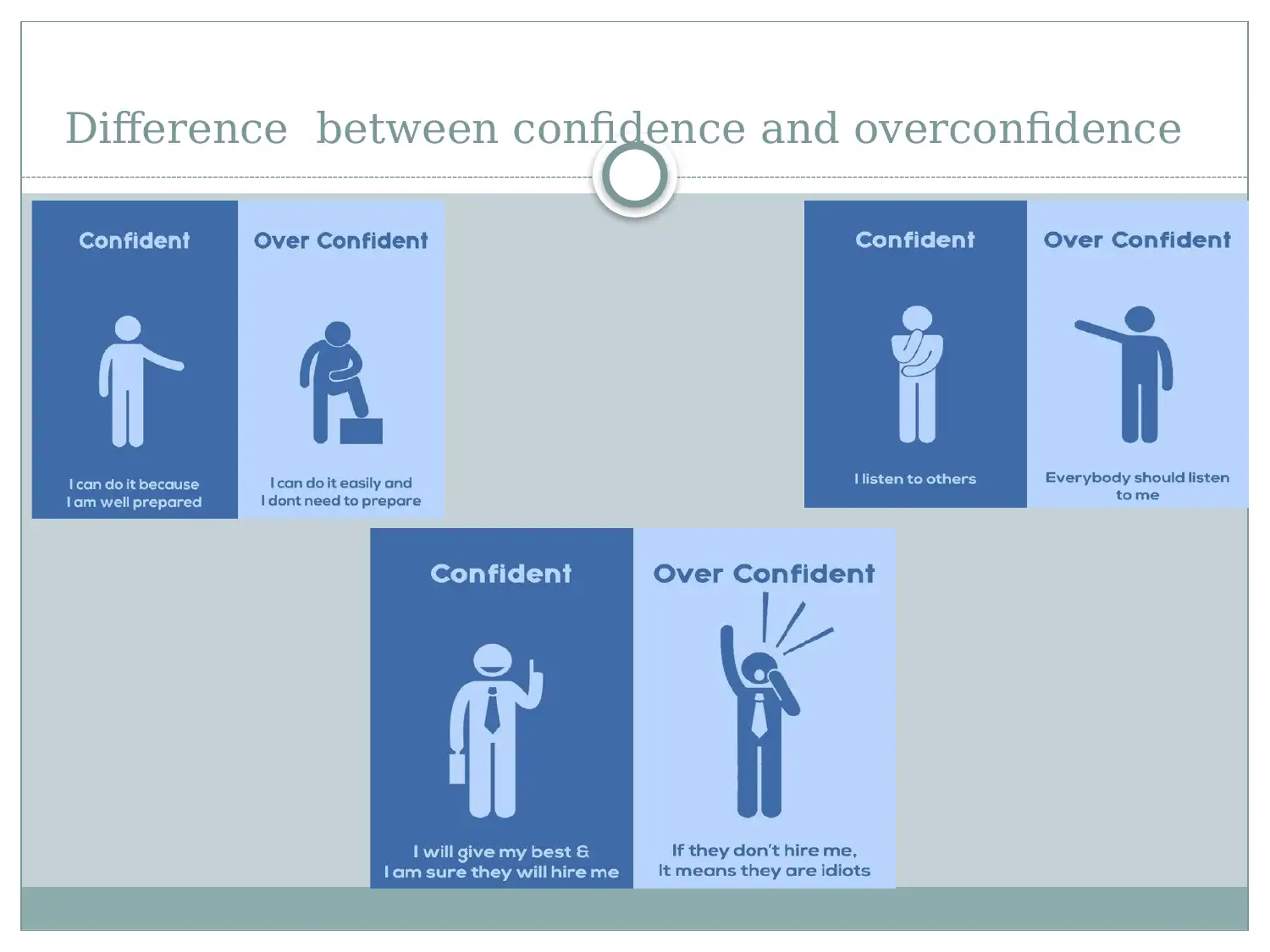
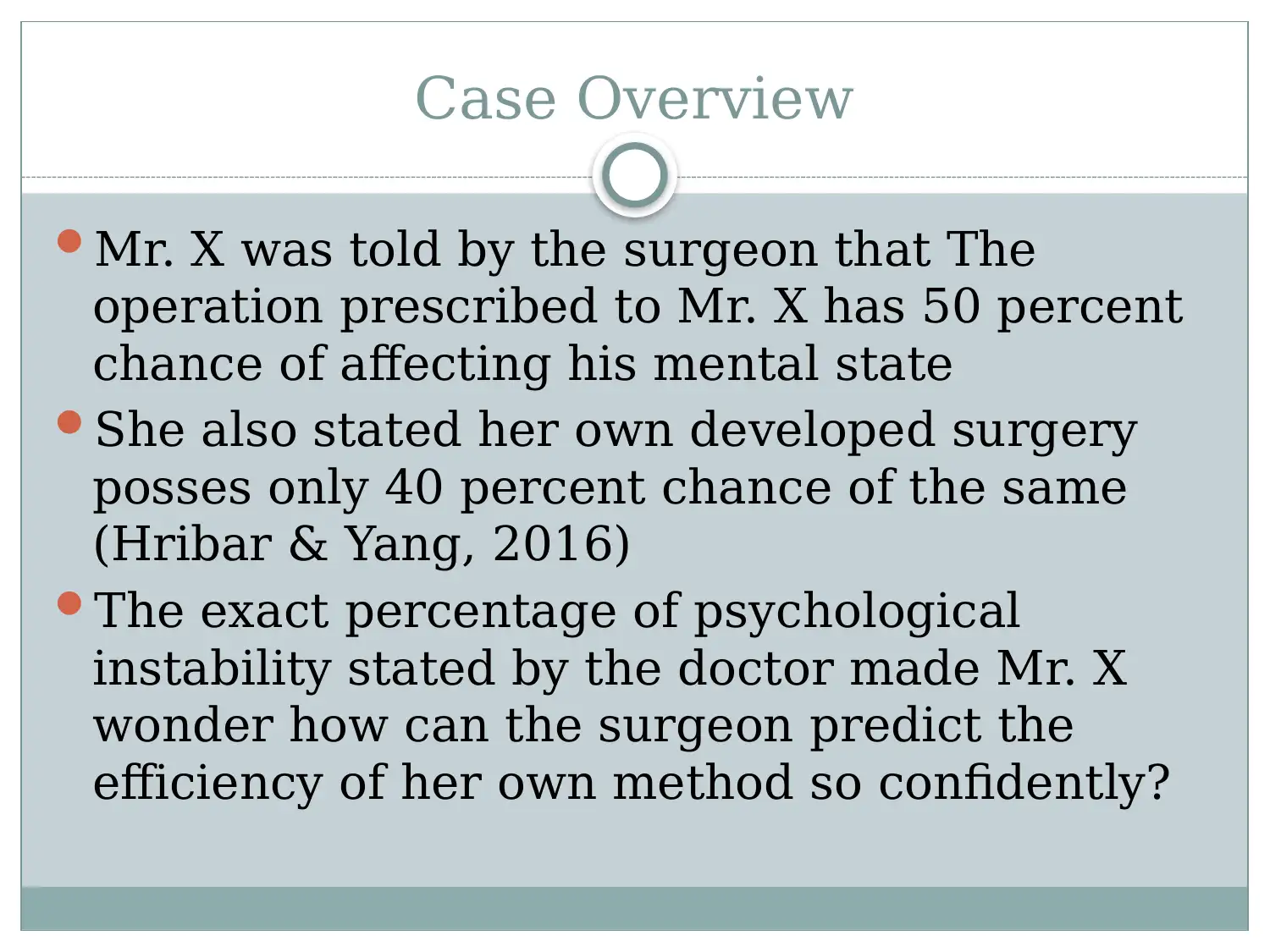
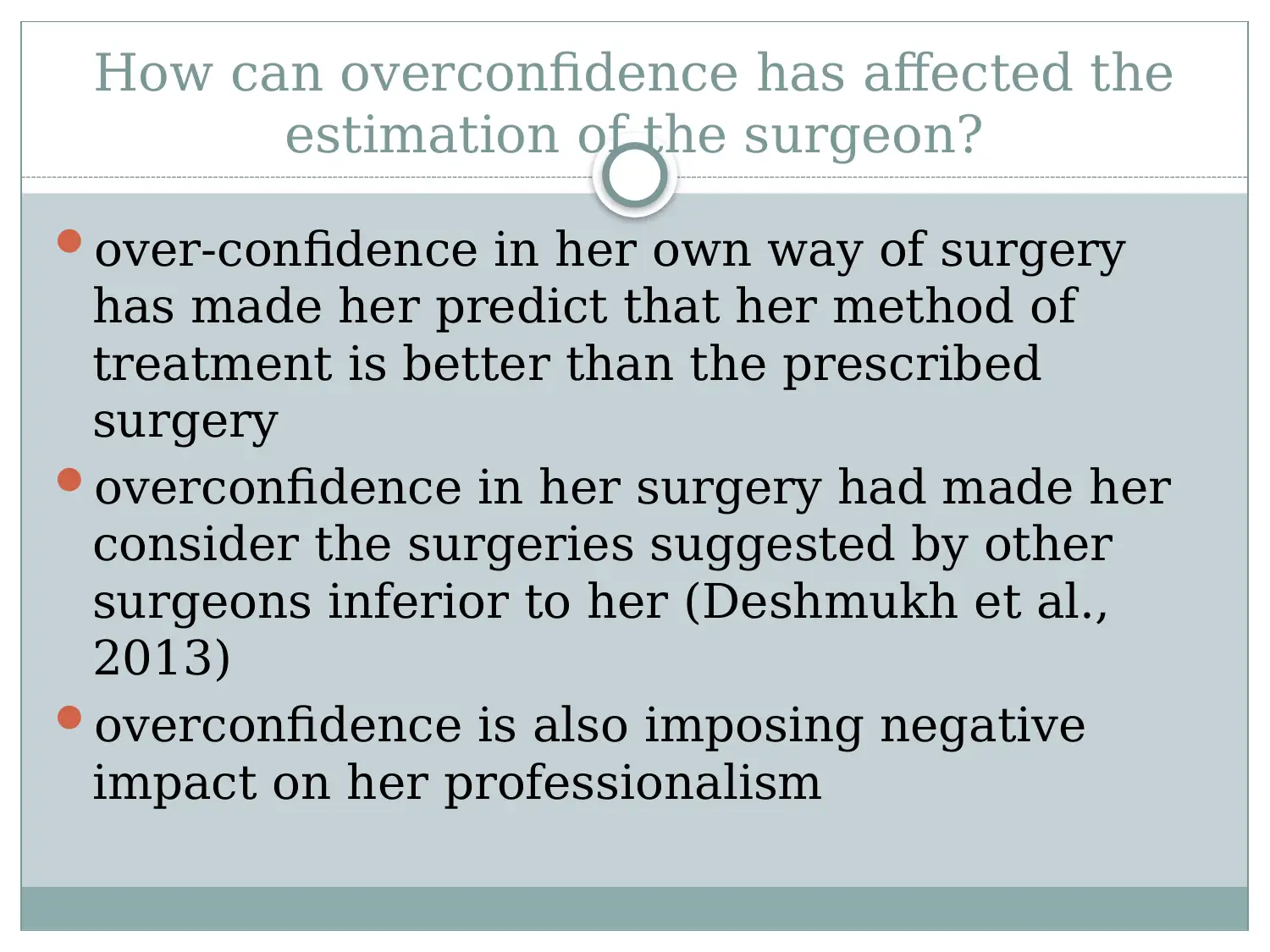
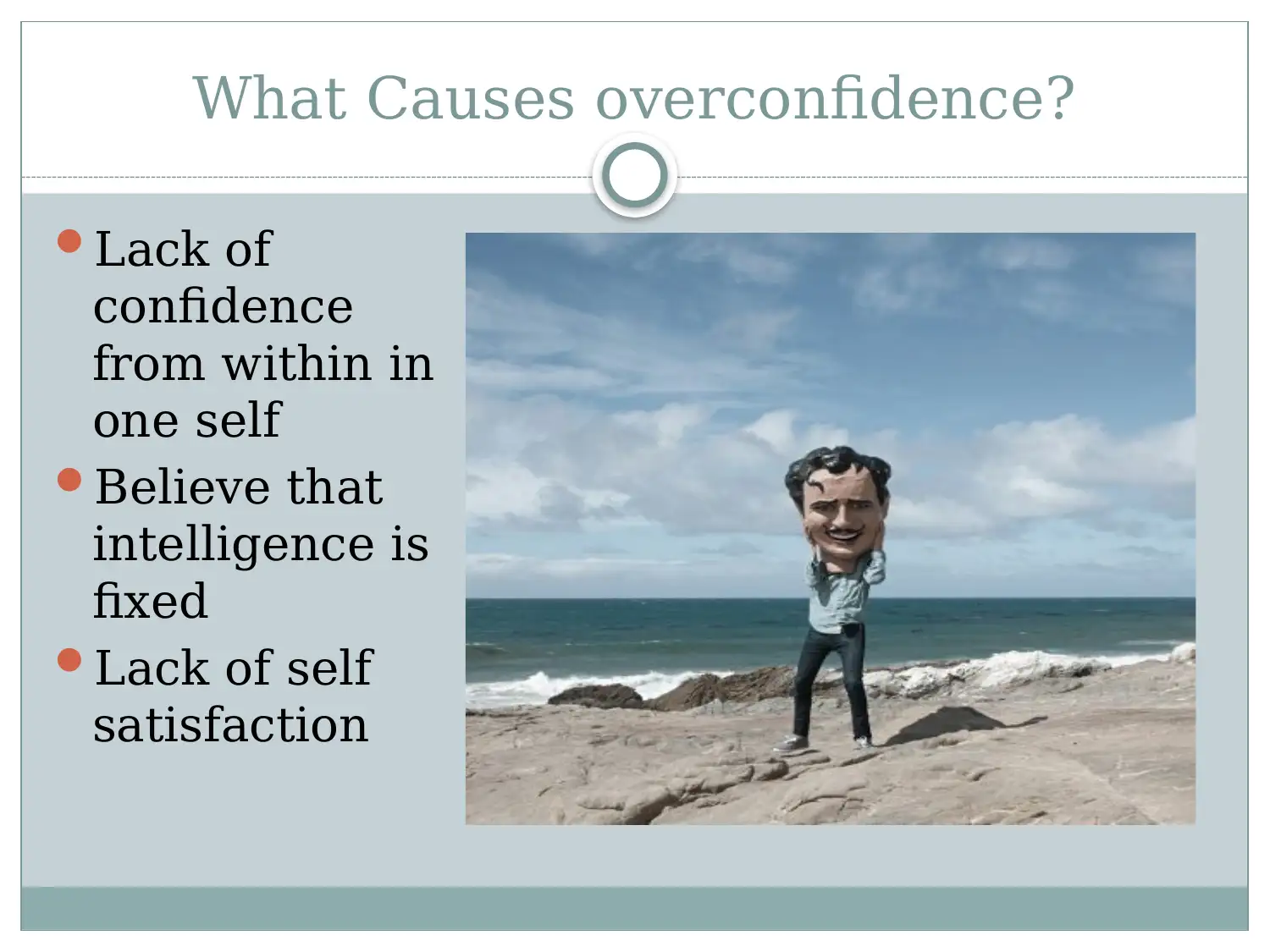
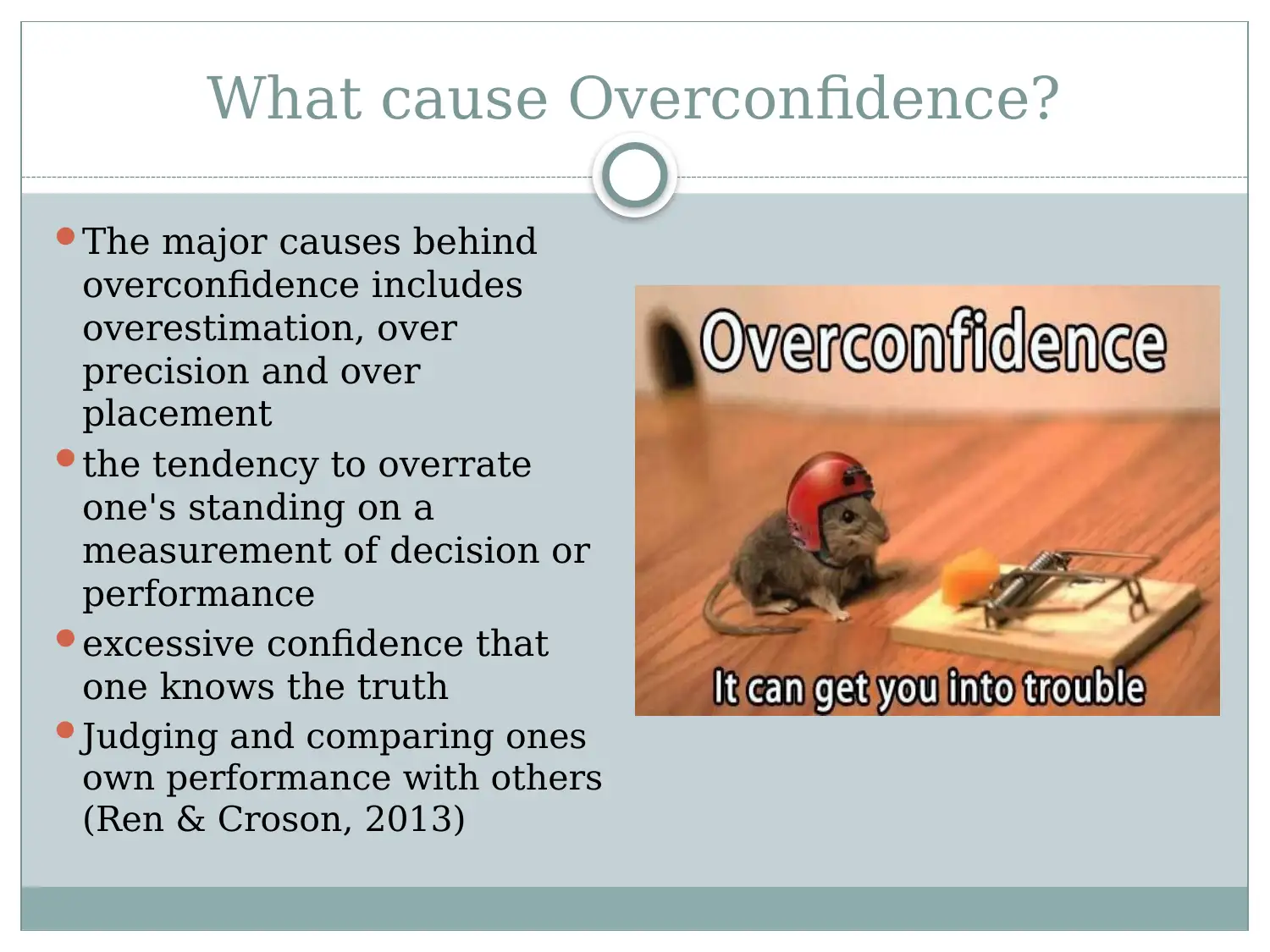
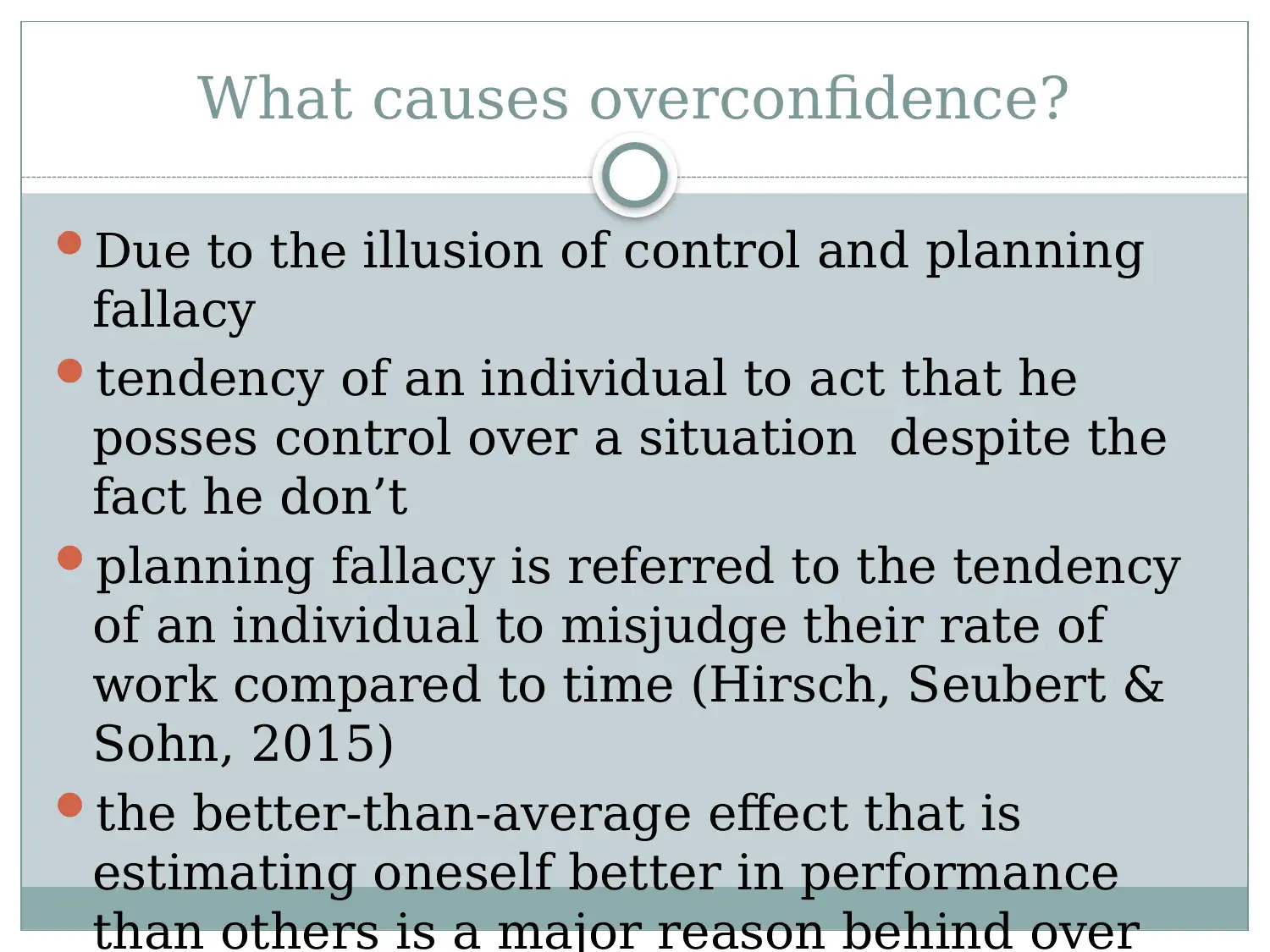
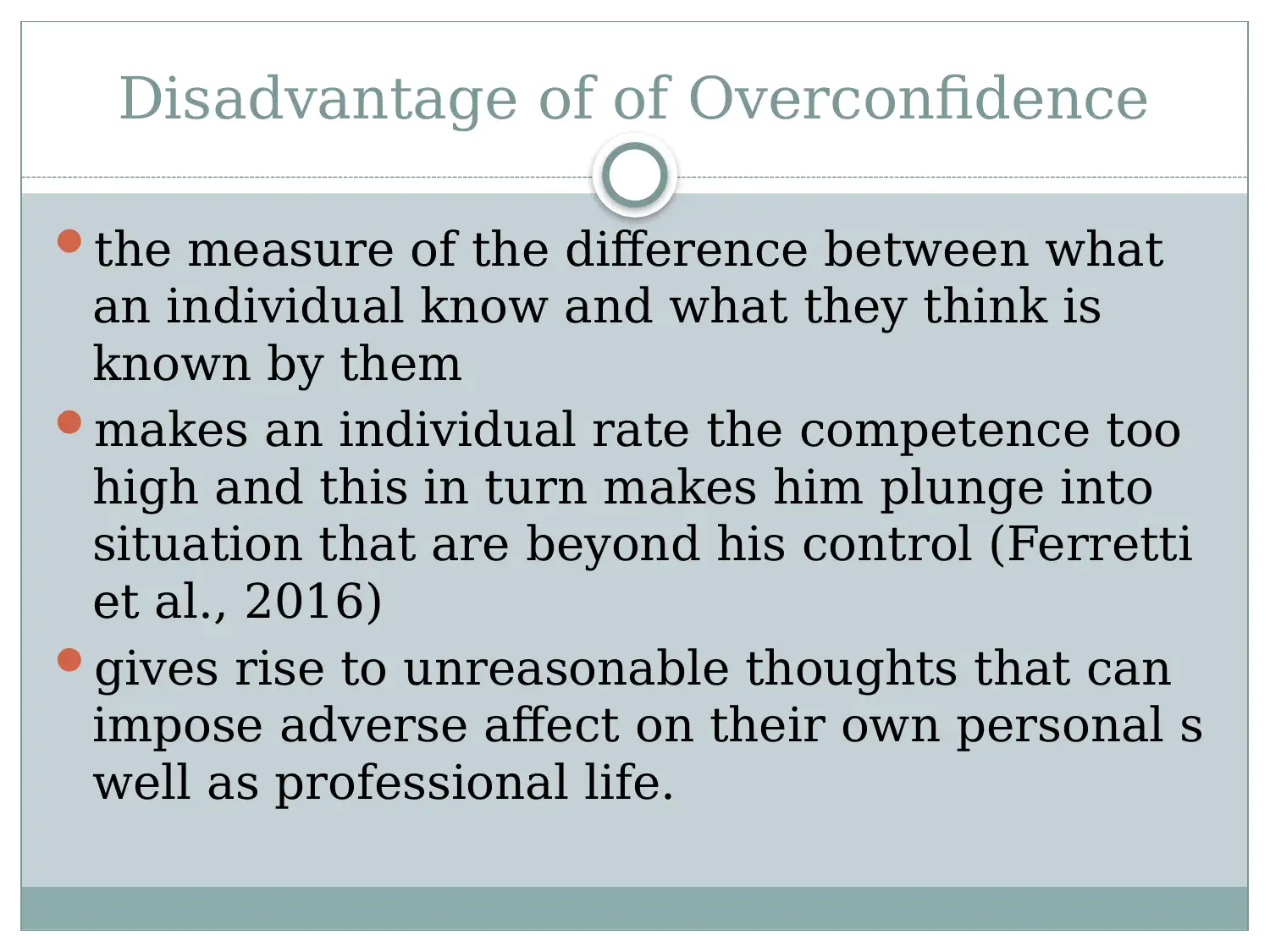
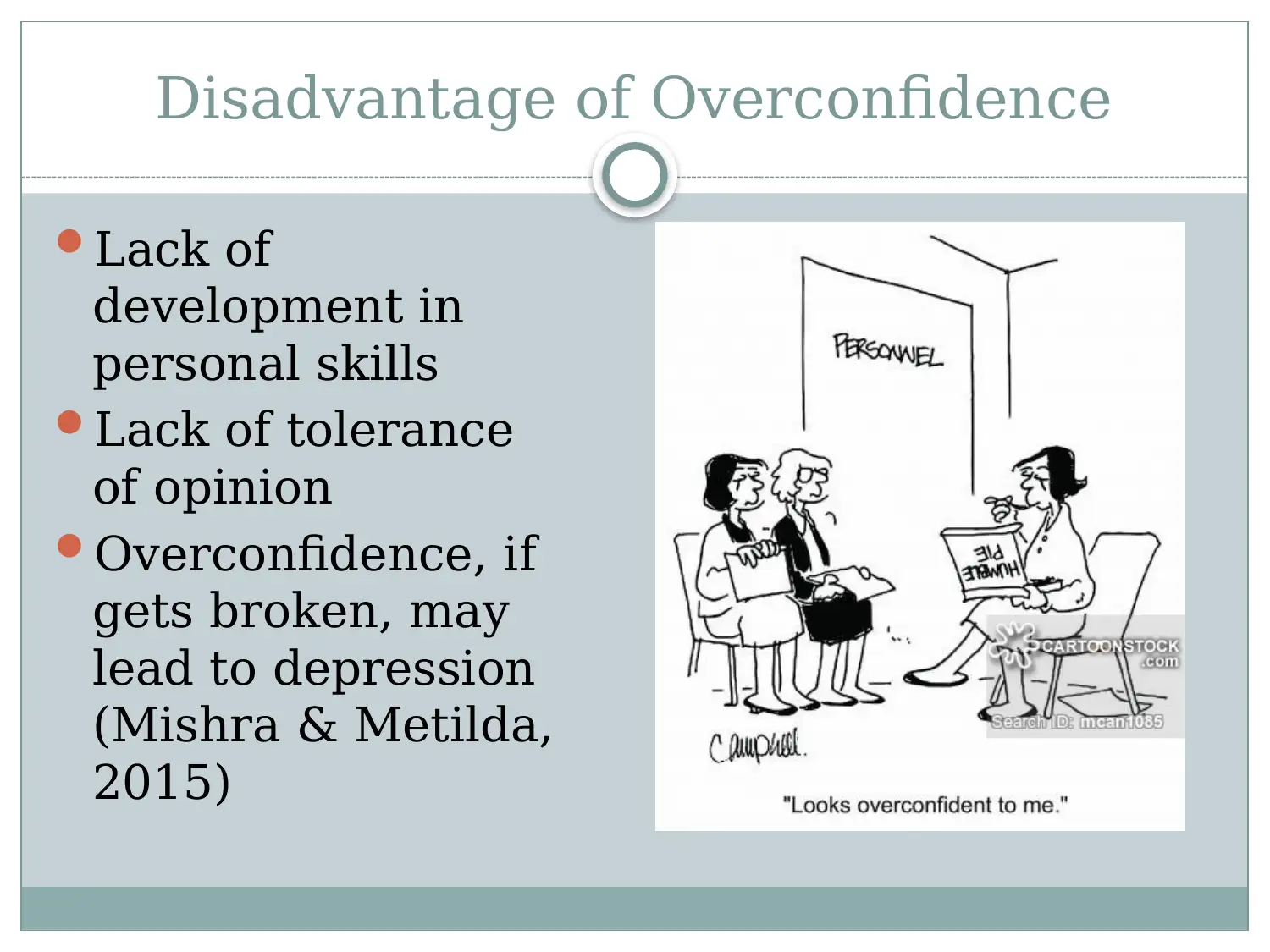
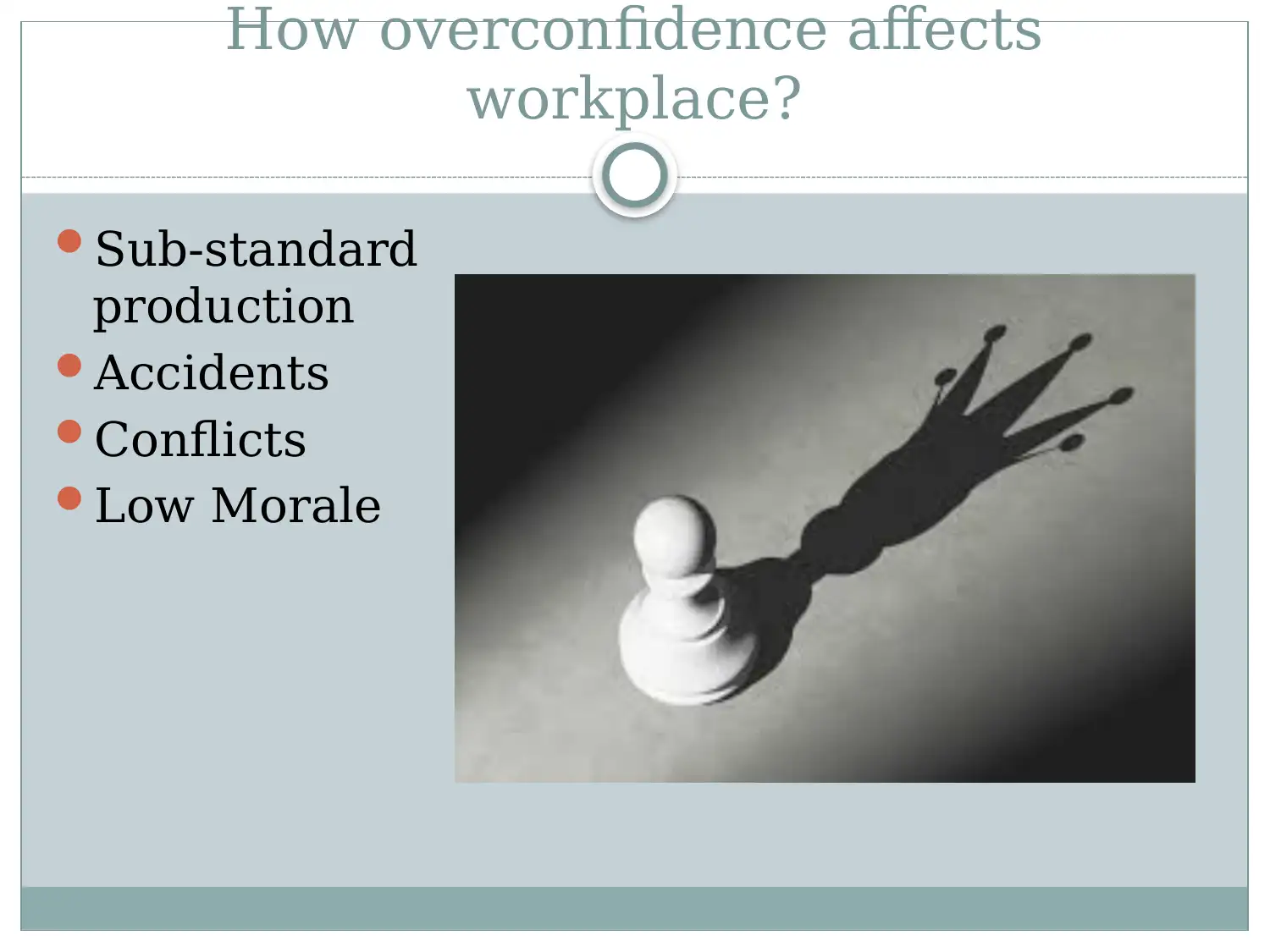


![[object Object]](/_next/static/media/star-bottom.7253800d.svg)